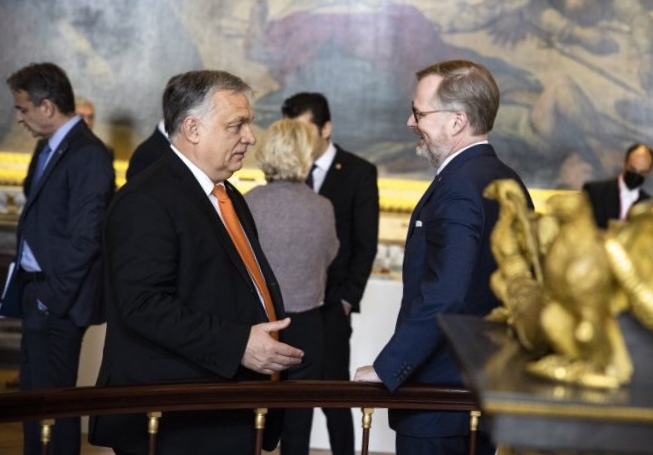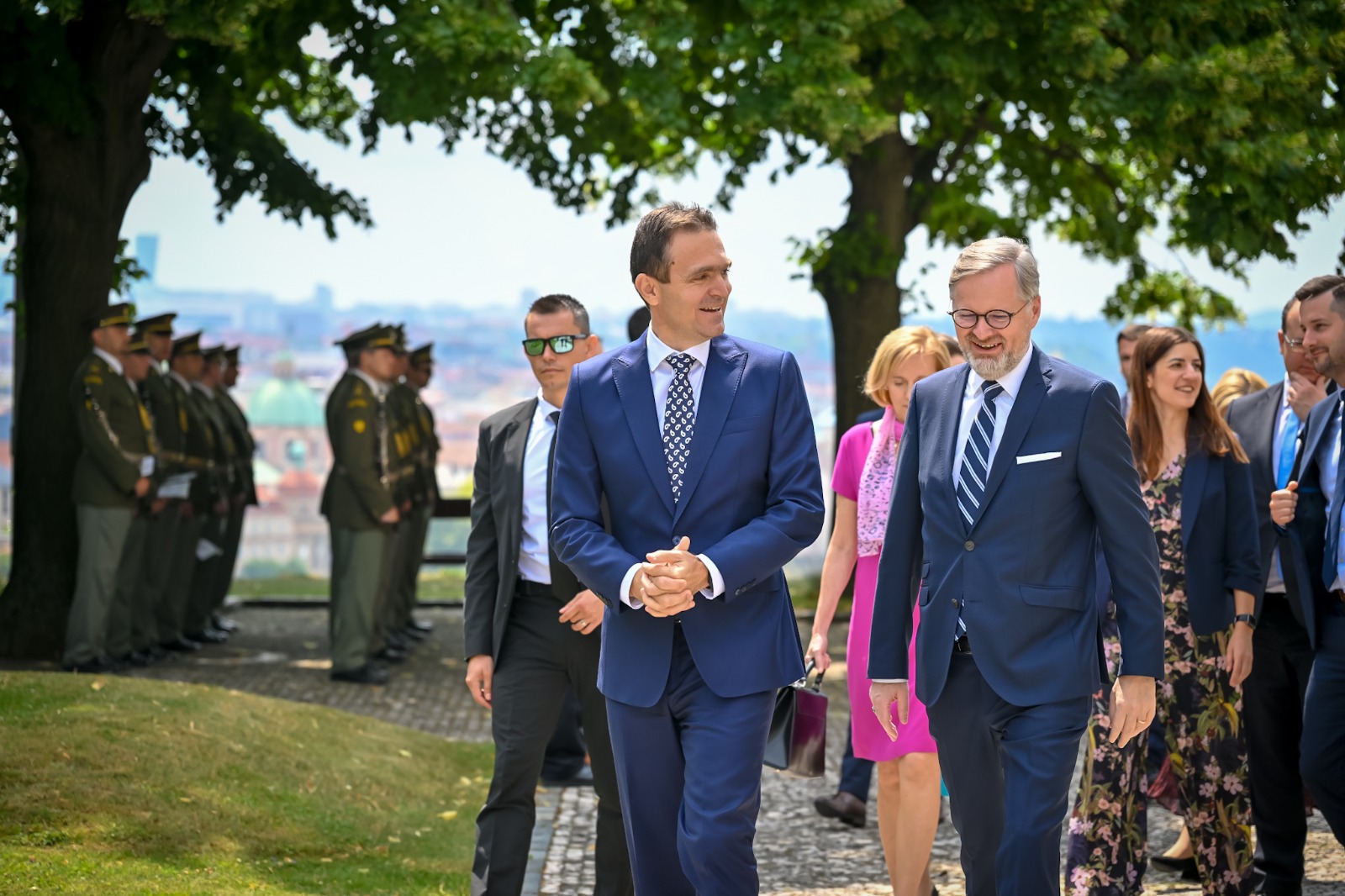
In his harsh criticism of his Visegrad 4 partners Petr Fiala had ventured out to unchartered territory.Continue reading
No one wants to end cooperation between the Visegrád countries, but the Czech Republic believes that a new meeting of heads of government would only make sense after the autumn elections in Slovakia and Poland, Czech Prime Minister Petr Fiala said at a joint press conference with Slovak Prime Minister Ľudovít Ódor in Prague on Tuesday.
It was the first official trip abroad for Slovakia’s recently inaugurated prime minister.

Slovak PM Ľudovít Ódor (L) and Czech PM Petr Fiala (R) in Prague on 4 July, 2023. Photo: Facebook/Petr Fiala
No one wants to end V4 cooperation, but it has several levels and areas. Cooperation will continue in many areas,”
Petr Fiala pointed out in response to a question.
He noted that the Czech presidency, which will start in July, will also see intensive cooperation, including a Visegrad presidency meeting in the autumn.
We really do not have a meeting of heads of government planned at the moment”,
the Czech prime minister said, confirming Czech press reports. He added that it would be called after the parliamentary elections in Poland and Slovakia, the formation of new governments and the clarification of the political situation.
By this latter remark, he may have been referring to the European Council’s failed attempt to reach an agreement on migrant quotas last week, because Poland and Hungary are firmly opposing it. There is also still no consensus on Sweden joining NATO, with the Czechs and the Slovaks urging it, but Hungary and Turkey slowing the process due to differences in their bilateral relations with the invitee country.
I think that only after that is there a point in having such a meeting,” said Petr Fiala.
On the other hand, the Prime Minister said, it would not be good for the Czech Republic if its international cooperation was limited to one platform. “Our closest partner is Slovakia, but we also want to cooperate with Poland and Hungary,” said Fiala.
According to Ľudovít Ódor, at the moment it can indeed be said that Czech-Slovak cooperation works better than Visegrad cooperation. He believes that the cooperation between the four Central European countries – the Czech Republic, Poland, Hungary and Slovakia – should be handled “pragmatically”. After the change of regime, these countries faced many common or very similar problems, of which the key ones have already been solved.
Visegrad cooperation “is perhaps less in the spotlight now than before, but it is still very important”,
the Slovak prime minister pointed out.
Featured image: Facebook/V4 – Visegrad group